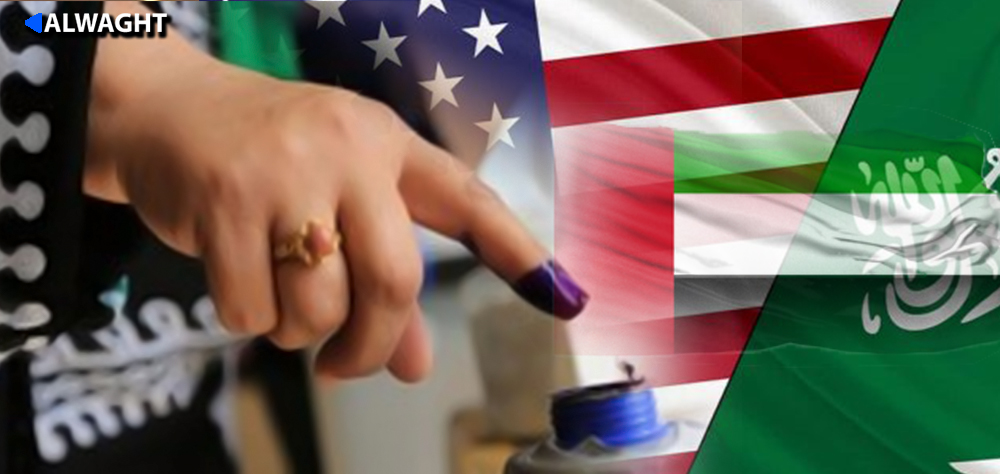Alwaght- Over the past weeks, there have been proposals in Iraq to delay the early parliamentary election and hold it under the international supervision. The election is scheduled for October 10, and according to Iraqi Independent High Electoral Commission (IHEC), so far 29 coalitions have registered to take part, with 25 of them having the experience to participate in the 2018 election. The commission said that so far, 283 parties have been granted foundation permits and 68 parties are about to be formed. Seventy-seven others have expressed readiness to join the vote.
However, in a controversial move, Iraqi Foreign Ministry and IHEC officials have called on foreign forces to monitor the election process. For example, on February 11, Iraqi Foreign Minister Fouad Hussein wrote a letter calling for international monitoring of the Iraqi elections. Also, the IHEC sent 75 invitations to the embassies of Arab and foreign countries and international organizations to join the monitoring process. This approach, however, has been challenged by various political parties, triggering explanation from the foreign ministry.
Ahmad al-Sahaf, the spokesman to the foreign ministry, on Saturday in a statement held that there has so far been no foreign supervision of the Iraqi election. This year, for the first time, a UN team at the invitation of the Iraqi government will supervise the election with full commitment to the Iraqi sovereignty. According to al-Sahaf, Iraq seeks to arrange for a "strong delegation" in association with the UN office to support efforts to ensure the success of the election process and to hold it at its time by launching a comprehensive strategy to inform the public about the importance of elections.
Foreign supervision a step to play in Western field
So far, the advocates of the election delay justified their demand with what they called lack of a ground for international supervision. For example, when on January 20, the cabinet postponed the elections to October 10 from June 6, one of the justifications of the IHEC was giving the UN supervisors the opportunity to play a role for highest transparency rates possible.
This excuse and such arguments are coming at a time the Iraqi political society and people demand cutting the foreign interference in their affairs. What is certain is that after 18 years, the Iraqi executive apparatus is now capable of holding a healthy election and that the UN monitoring is not a technically good reason to delay the election. More importantly, in the last four rounds of Iraqi parliamentary elections in 2006, 2010, 2014, and 2018, there have been no serious allegations of electoral fraud. In fact, the Iraqi government and people have left a successful record in all the last elections, and so any foreign monitoring demand not only makes no sense but also is in line with the interests of foreign actors.
Bias in favor of specific political groups
The request to such international bodies as the UN and foreign countries to monitor the Iraqi elections in no way reflects the true will of the Iraqi people. In fact, many political factions believe that any foreign supervision violates Iraq's sovereignty and national will and cannot serve the Iraqi interests.
Foreign interference and negative role in the Iraqi developments in the years following the Saddam rule collapse have always been a target of public and political criticism. Many political observers and the Iraqi public also believe that the most important cause of insecurity and instability in this country are the destructive policies and role played by the foreign actors. Some specific groups are seeking to drag the foreign interference in the election process under the excuse of lack of transparency. Such a push by no means serves the national Iraqi interests but interests of specific groups or political parties.
West's new trick to influence the Iraqi elections
The election monitoring demand, from a different angle, can serve the US and Britain-led Western camp to impact the Iraqi parliamentary election process. Failed in their push for delay, the Western countries are now raising the necessity for international monitoring. Recently, the British ambassador to Iraq Stephen Hickey in an interview with a Saudi-funded news network questioned the health of the Iraqi vote and called for postponing the elections process.
The comments were met by strong-toned reactions from a majority of the Iraqi parties, with them labeled "foreign dictate" and parties condemning what they called "unacceptable meddling" in the Iraqi affairs. With first plan foiled and election date remaining October 10, the West seems to have moved to plan B, which is the so-called need for monitoring by foreign observers.
Given the American and British sway over the international organizations especially the UN, raising the election supervision triggers speculations about their plans to manipulate the polling process to their interests in Iraq. In other words, if the favorable results are not an outcome—this is highly likely because the people are now more than any time before support the pro-resistance and anti-American political agenda— it is possible that the Westerners first raise allegations about manipulation of the election and should this plan fails too, they question legitimacy of the results all to sow division among the political factions.



























